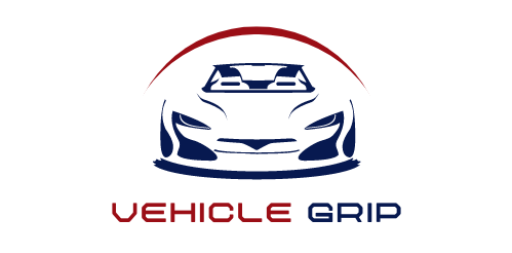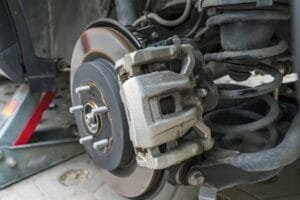Owning a vehicle is not just about freedom and convenience—it also comes with responsibilities. Whether you’re a daily commuter, weekend road-tripper, or long-haul traveler, unexpected expenses can crop up when you least expect them.
From routine maintenance to sudden repairs, your financial preparedness can make the difference between a minor inconvenience and a major setback. Ensuring you’re equipped to handle unforeseen costs can save you stress, time, and money in the long run.
Budgeting for Regular Maintenance
One of the best ways to avoid unpleasant surprises is to stay proactive with vehicle maintenance. Regular oil changes, tire rotations, and brake checks not only keep your car in peak condition but also reduce the chances of sudden breakdowns. These recurring expenses are easier to predict, making it possible to set aside money for them in advance.
However, while planning for these predictable costs, it’s important to think about situations that may fall outside your usual expectations. Establishing an emergency fund ensures you’re not caught off guard by sudden, costly repairs. Whether it’s a blown tire on the highway or an alternator failure during a road trip, having a financial buffer can provide much-needed peace of mind.
Dealing with Roadside Emergencies
Despite even the best maintenance practices, some issues arise without warning. A flat tire, dead battery, or even an accident can leave you stranded, requiring immediate attention and sometimes costly fixes. Roadside assistance memberships can help mitigate these situations by covering towing, minor repairs, or fuel delivery.
If you don’t have roadside assistance, preparation is key. A well-stocked vehicle emergency kit with jumper cables, a tire repair kit, and a portable air compressor can save the day and reduce your dependency on expensive towing services. Nonetheless, these kits are no replacement for financial readiness, as larger expenses, such as engine repairs or collision damage, may still require significant out-of-pocket spending.
Insurance: Your First Line of Defense
Vehicle insurance is essential, not just because it’s legally mandated, but because it can significantly reduce financial burdens in times of crisis. However, insurance often comes with deductibles, and there are always situations it won’t cover. For example, comprehensive and collision insurance may protect you in the event of theft or an accident, but wear-and-tear issues, like a worn-out clutch or aging suspension, typically aren’t included.
Review your policy regularly to ensure it provides adequate coverage for your needs. If gaps exist, you may need to prepare for these out-of-pocket expenses separately, further underscoring the value of financial preparedness.
The Hidden Costs of Vehicle Ownership
Owning a vehicle isn’t just about fuel, insurance, and maintenance—it’s also about handling the hidden costs. For instance, city drivers often encounter parking fees, toll charges, and emissions-related compliance costs. Long-distance drivers face wear-and-tear expenses, potential fines for overloading, and additional fuel costs due to high mileage.
Ignoring these costs can strain your finances over time. A solution is to create a broader financial plan that accounts for both predictable and unforeseen expenses. This approach ensures that when something unexpected arises—whether it’s a major repair or an unexpected fine—you’re equipped to handle it without disrupting your monthly budget.
How to Prepare Financially for the Unexpected
- Set Aside Regular Savings
Establishing a separate savings account exclusively for vehicle-related expenses is a smart move. Even small contributions over time can add up, helping you cover future costs with less stress. Ideally, this account should be distinct from your regular savings to ensure you don’t dip into it for non-vehicle-related expenses. - Invest in Preventative Maintenance
Spending a little now can save a lot later. Staying on top of small repairs and routine check-ups often prevents bigger, costlier problems down the road. For example, replacing brake pads on time is far less expensive than dealing with damaged rotors. - Keep Records of Repairs and Services
Maintaining detailed records of your vehicle’s service history helps identify patterns and anticipate upcoming repairs. It also ensures you’re not overcharged for services you may have already addressed. - Leverage Technology
Smartphone apps and budgeting tools can help track expenses, alert you to upcoming maintenance, and even find cheaper fuel options nearby. These tools can make it easier to stick to a vehicle-related budget while also planning for future expenses. - Build a Financial Buffer
The most effective way to safeguard against unexpected costs is to establish a financial cushion. Whether you call it a car maintenance fund or an emergency fund, this reserve should be dedicated to covering vehicle-related emergencies. Aim to save at least a few hundred dollars for minor issues, and increase this amount if you own an older vehicle that may be more prone to breakdowns.
Knowing When to Upgrade
Sometimes, constant repairs and maintenance costs may signal it’s time to replace your vehicle. If you’re spending more on repairs than your car is worth, it may make financial sense to invest in a newer, more reliable model. While this decision involves upfront costs, a newer vehicle often comes with fewer maintenance headaches and may even be more fuel-efficient, saving you money in the long run.
When upgrading, it’s wise to research total ownership costs, including fuel efficiency, insurance premiums, and potential repairs. Even though a newer vehicle may seem like a significant expense, it can alleviate the financial unpredictability that often comes with older cars.
The Road Ahead
Vehicle ownership comes with a unique set of financial challenges. From regular maintenance to unexpected repairs, having a plan ensures you’re prepared for the ups and downs of the journey. By budgeting effectively, staying proactive with maintenance, and creating a dedicated financial buffer, you can navigate these challenges with confidence.
Remember, the goal is not to eliminate the costs associated with vehicle ownership but to manage them in a way that doesn’t disrupt your financial stability. Whether it’s ensuring you have an emergency fund for major repairs or simply setting aside a small amount each month for future expenses, financial preparedness is the key to stress-free driving.


